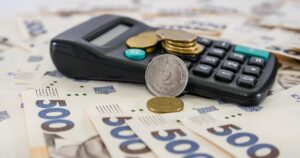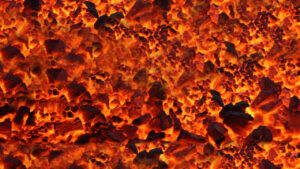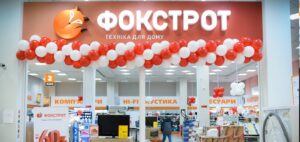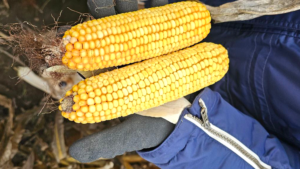
European digital-first banking group Iute Group plans to enter the Ukrainian market by launching a bank under the IuteBank brand with a focus on digital banking services for everyday financial needs, the company said on its website on Tuesday.
“This step is aimed at supporting our long-term goal of expanding digital banking services in a disciplined and responsible manner,” said Iute Group CEO Tarmo Sild.
According to the announcement, the market entry involves an agreement with the Deposit Guarantee Fund (DGF) after approval by the National Bank of Ukraine (NBU).
Under the agreement, Iute Group plans to acquire PJSC “Transitional Bank ”Iute Bank” with a banking license, to which a selective portfolio of low-risk assets and corresponding retail deposit liabilities totaling approximately EUR4 million were transferred from the insolvent RVS Bank.
The expected price of the transaction will be EUR120 thousand, with financing planned from the group’s available liquidity. Iute Group also reported that it expects the net loss of Ukrainian banking operations in 2026 not to exceed EUR3 million.
Upon completion of the transaction, the Ukrainian banking structure is to become the successor to the selected assets and deposit liabilities of RVS Bank. The assets to be transferred mainly include government bonds and cash, while the loan portfolio and related credit risks are not planned to be transferred.
The company expects that around 13,000 retail customers will be transferred as part of the deal, along with their accounts and deposits, but without the branch network.
The bank’s CEO will be Artur Muravitsky, who has over 22 years of experience in the financial sector and previously held the position of deputy chairman of the board of TAScombank and management positions at Ukrposhta, Finance Bank, and VTB Bank in Ukraine.
According to Iute Group, the initial steps after the deal is done will include capitalizing the bank, putting together a key team, and getting ready to launch digital banking services.
As reported, in December, the Deposit Guarantee Fund announced a competition for the best proposal to settle RVS Bank, which the National Bank had declared insolvent. As part of this procedure, the transitional bank Iute Bank was created, headed by Muravitsky.
According to the NBU, as of November 1, 2025, RVS Bank ranked 53rd (UAH 819.8 million) among 60 solvent banks in terms of assets.
According to information on the Iute Group website, it was founded in 2008 by Sild and Allar Niinepuu and is currently a technology-oriented financial services provider serving over 970,000 customers in the Balkans, as well as being present in the Moldovan market since 2008. The group is headquartered in Tallinn, has over 800 employees and more than 50 branches.
Iute Group expanded through several non-bank financial institutions to Albania in April 2015, North Macedonia in September 2017, and Bulgaria in February 2019, and in 2022 acquired a 95% controlling stake in Moldova’s Energbank.
Iute Group provides lending, payment, currency exchange, and insurance brokerage services.

Leaders of the insurance market of Ukraine on collected premiums in January-November 2025 became insurance companies “SG ”TAS“ – UAH 7,047 billion, ”ARKS“ – UAH 5,275 billion, ”INGO“ – UAH 4,642 billion, IC ‘VUSO’ – UAH 4,639 billion, ”Arsenal Insurance” – UAH 4,458 billion.
As evidenced by the data of the project of information exchange “PRIMA” of the National Association of Insurers of Ukraine (NASU), compared to 10M2025 IC ‘Unica’, which occupied the fifth position of the leaders’ rating, has conceded this place to IC “Arsenal Insurance”.
In the market of compulsory insurance of motor civil liability at the end of 11 months, as before, were SG “TAS” – UAH 3,672 billion, “Oranta” – UAH 2,702 billion, “Knyazha VIG” – UAH -2,221 billion, ‘INGO’ – UAH 1,123 billion and “Arsenal Insurance” – UAH 1,095 billion.
Also in the cross-section of the compared periods there were no changes in the market of “Green Card”, where the top five are still “TAS” – UAH 1.150 billion, “USG” – UAH 967.4 million, ‘ROM’ – UAH 863 million, “Knyazha VIG” – UAH 351 million, “VUSO” – UAH 247.9 million.
The CASCO market, as before, is headed by IC “ARKS” – UAH 2.559 billion, “Arsenal Insurance” – UAH 2.469 billion, “VUSO” – UAH 1.202 billion, ‘Unica’ – UAH 1.143 billion and “Universalna” – UAH 1.046 billion.
The leadership in voluntary health insurance is held by the former five: IC Unica – UAH 1,839 billion, followed by IC VUSO – UAH 1,109 billion, IC Universalna – UAH 1,045 billion, IC INGO – UAH 933,4 million and SG TAS – UAH 816,5 million.
In the life insurance market, the first position is still occupied by IC “MetLife” – UAH 2.771 billion, IC ‘TAS’ – UAH 850.9 million, “Grave Life” – UAH 625.2 million, “ROM Life” – UAH 360.1 million, “Unica Life” – UAH 315 million.
As reported, as of December 1, 2025, 48 risk insurers worked in the insurance market of Ukraine, 10 specialized in life insurance, one – with a special status (“Export Credit Agency”, ECA).

In 2026, the maximum unemployment benefit will be 8,647 hryvnia, and the minimum will be 3,900 hryvnia, according to Yulia Zhovtyak, director of the State Employment Center.
“On January 1, the minimum wage in Ukraine increased and now stands at 8,647 hryvnia. This indicator is a key economic component of the active employment promotion programs implemented by the State Employment Service. Therefore, along with this social standard, basic benefits for individuals and compensation for businesses are also automatically increased. Support for job seekers: the maximum unemployment benefit is now UAH 8,647, and the minimum is UAH 3,900 (in 2025, such benefits amounted to UAH 8,000 and UAH 3,000, respectively – IF-U),” Zhovtyak wrote on Facebook.
According to her, 1.4 million people have received such assistance since the start of the full-scale invasion.
Compensation for the employment of forcibly displaced citizens seeking work has also increased to UAH 17,294 (in 2025, it was UAH 16,000).
In addition, the coverage of expenses for the employment of veterans has increased to 8,647 UAH, and for young people under the age of 35 for their first job – to 4,323 UAH.
“Thanks to these compensation programs, almost 62,000 internally displaced persons, almost 800 veterans, and 2,800 young people have been employed,” said the director.
Among other things, compensation for the arrangement of workplaces for people with disabilities of group I has increased to UAH 129,705, and for group II to UAH 86,470 (in 2025, UAH 120,000 and UAH 80,000, respectively).
“Army of Restoration”: payment for a full month of socially useful work is now UAH 12,970. For frontline territories, as well as for veterans, it increases to UAH 17,294. As part of the “Army of Restoration” project, 82,000 people have been involved in temporary work, and more than 330,000 referrals have been issued,” Zhovtyak added.

PJSC Zaporizhkox, one of Ukraine’s largest producers of coke and chemical products and part of the Metinvest Group, increased its blast furnace coke production by 2.7% in 2025 compared to 2024, from 874,700 tons to 898,300 tons.
According to the company, 73,300 tons of coke were produced in December, compared to 76,300 tons in the previous month.
As reported, Zaporizhkox increased its blast furnace coke production by 2.1% in 2024 compared to 2023, to 874,700 tons from 856,800 tons.
In 2023, Zaporizhkox increased its output of blast furnace coke by 16% compared to 2022, to 856,800 tons from 737,400 tons.
Zaporizhkox has a complete technological cycle for the processing of coke-chemical products.
Metinvest is a vertically integrated mining group of companies. Its main shareholders are SCM Group (71.24%) and Smart Holding (23.76%). Metinvest Holding LLC is the managing company of the Metinvest Group.

Foxtrot, a Ukrainian retailer of household appliances and electronics, opened five new stores and renovated five existing stores in 2025, the company announced on its website.
“During 2025, Foxtrot opened five new stores in Chaban, Brovary, Odesa, Kryvyi Rih, and Kharkiv. At the same time, the company renovated five more retail outlets: in Uzhhorod, Lviv, Khust, Myrhorod, and Kalush,” the statement said.
In addition, the retailer’s online business also grew last year. According to its data, traffic to the online store increased by 46% over the year, and turnover by 76%. Visitor traffic and turnover through the mobile app tripled, the company said.
According to Foxtrot, the number of active customers increased by 11% last year, the frequency of purchases by 3%, and customer retention by 12%. Overall, the company increased its customer base by almost 9% over the year, to 15.1 million.
At the end of 2025, the company had 3,226 employees.
According to the retailer, during 2025, Foxtrot transferred equipment and other resources worth more than UAH 10.2 million to military units, and the total amount of aid since the start of the full-scale invasion of Ukraine by the Russian Federation reached UAH 52.7 million.
Foxtrot is one of Ukraine’s largest omnichannel retail chains in terms of the number of stores and sales of electronics and household appliances. As of early 2026, the company operates 127 stores in 67 cities, the Foxtrot.ua online platform, and the mobile app of the same name.
According to Opendatabot, the revenue of FTD-Retail LLC (Kyiv), which develops the chain, increased by 17.6% in 2024 compared to 2023, reaching UAH 14 billion 882.632 million, but its net profit was lower: UAH 6 million 721 thousand against UAH 314 million 436 thousand, respectively.
In the first nine months of 2025, the company received UAH 12.1 billion in revenue and UAH 167.4 million in net losses.
The founders of the omnichannel retailer Foxtrot are Ukrainian businessmen Gennady Vykhodtsev and Valery Makovetsky.

Agro-Region agricultural holding has completed its 2025 harvest campaign with a record corn yield of 9.64 tons per hectare, according to a Facebook post by the holding’s press service.
Agro-Region stated that the yield indicators for the 2025 season exceeded the planned forecasts. One of the production units, AR Bozna, broke its own yield record and the record of other units, achieving a yield of 11.87 tons/ha.
Yuriy Lysak, chief agronomist of Agro-Region, recalled that 2025 was marked by cool weather conditions: spring started late, and all crops, especially corn, did not receive the necessary amount of heat. That is why the harvest started with a delay of almost two weeks. Despite the increased moisture content of corn, which affected the productivity of elevators, the harvest results, according to the expert, were “truly impressive.”
“Thanks to the Armed Forces of Ukraine, as well as the coordinated work of the agronomic, engineering, and elevator teams, we were able to achieve high results,” Lysak summed up.
Agro-Region agricultural holding owns a land bank of 39,000 hectares in the Kyiv, Chernihiv, Zhytomyr, and Khmelnytskyi regions. It specializes in crop production. It consists of 11 companies, which are united into four crop clusters. It has two elevators: Boryspil with a capacity of 73,000 tons and Myropil with a capacity of 52,000 tons.
Agro-Region’s annual harvest of grain and oilseeds is 200,000 tons.
In April 2021, the Swedish company Lobiu Sala AB, owned by former Ukrainian Economy Minister Aivaras Abromavičius, received permission from the Antimonopoly Committee of Ukraine to purchase the Swedish company Agro Region Stockholm Holding, which manages the Agro-Region group of companies in Ukraine.